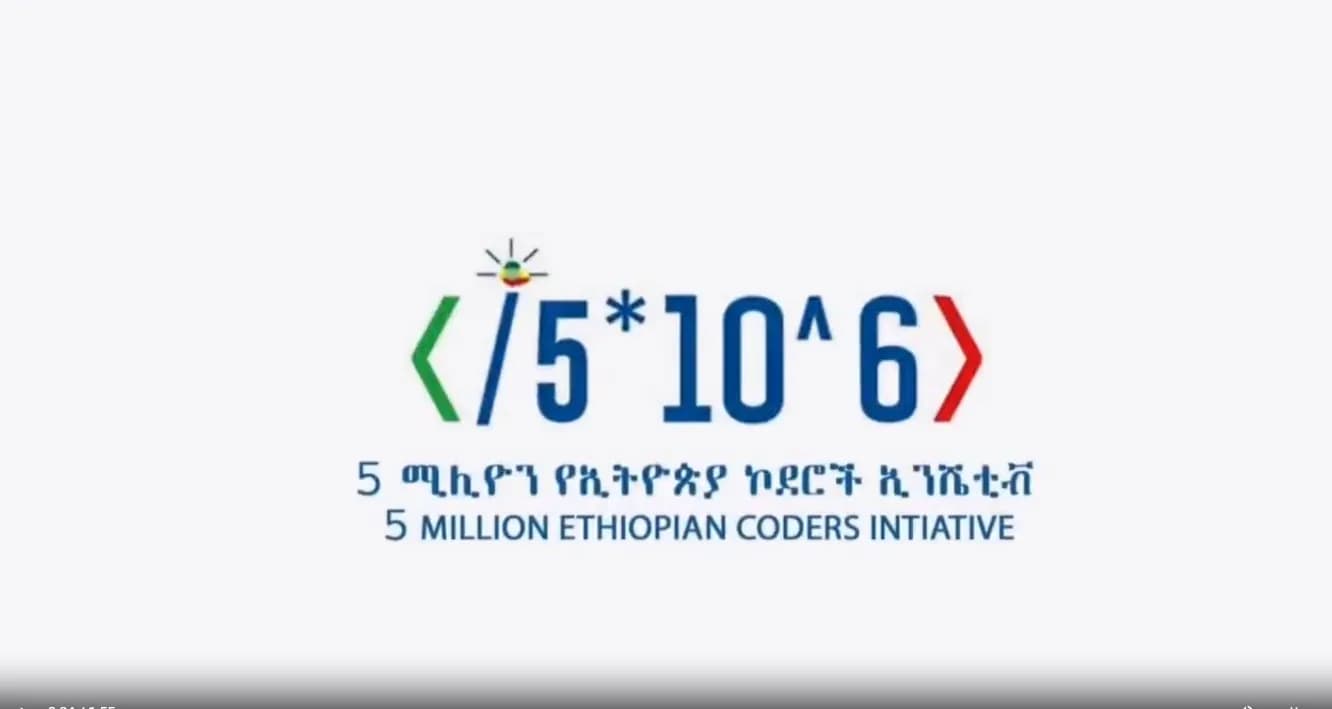Progress for 0 ad
Progress for 1 ad
Progress for 2 ad
Progress for 3 ad

Partner Content
Addis Ababa, Ethiopia

Ethiopia’s education system is undergoing a transformation, driven by the government’s ambitious push to integrate technology into learning. Digital Ethiopia 2025, the nation’s strategic blueprint, envisions a future where technology is seamlessly integrated into all aspects of society, including education. By fostering digital literacy and expanding access to tech-based learning tools, the government aims to empower its youth and transform Ethiopia into a regional hub for innovation.
The Five Million Coders program is a result of this initiative. It is designed to teach coding and digital skills to millions of young Ethiopians. Supported by international partnerships, the program seeks to address the digital literacy gap while positioning Ethiopia as a competitive player in the global technology landscape.
Around 360,000 youths are taking part in this training program across the country, according to the Ministry of Innovation and Technology (MInT).
Fikru Yakob, Educational affairs Consultant and co-founder of Kelem Tutors highlights the importance of these initiatives in equipping young people with critical skills. “Programs like Five Million Coders are key to preparing our youth for the future. However, we must ensure these opportunities are accessible to all, especially those in underserved areas,” he said during the June episode of EdTech Mondays Radio Show, a collaborative initiative between Shega Media & Technology and the Mastercard Foundation.
Despite the program’s potential, its implementation faces significant obstacles, particularly in rural areas where infrastructure remains a challenge. Ethiopia’s regions can be broadly categorized into primary cities with reliable access to resources, secondary cities with limited facilities, and rural areas with little to no digital infrastructure.
To bridge this divide, the government is partnering with NGOs and private organizations to establish computer labs and digital hubs in underserved regions. These partnerships aim to democratize access to technology and ensure the benefits of EdTech initiatives reach all corners of the country.
However, overcoming regional disparities requires more than just infrastructure. Awareness campaigns and community engagement are equally critical in fostering acceptance of digital education in areas where traditional methods have long been the norm.
While much attention is given to equipping students with digital skills, preparing teachers to adopt and integrate technology into their teaching practices is equally vital.
During her stay on Edtech Mondays Ayda Aseged, a seasoned teacher and policy advocate, explained, “Technology adoption by teachers is critical for the success of EdTech initiatives. It’s not just about infrastructure or devices; it’s about creating a mindset shift among educators.” Ayda emphasized the need for comprehensive teacher training programs that address both the technical and cultural challenges of integrating technology into classrooms.
Many educators remain hesitant to embrace digital tools, often citing concerns about reduced interaction with students. “We’ve come a long way with traditional methods. I still feel uneasy not grading homework with my red pen,” Ayda noted. However, she acknowledged that technology can enhance efficiency and provide innovative ways to engage students.
Ethiopia’s commitment to EdTech extends beyond individual programs like Five Million Coders. The government has introduced policy reforms and strategic plans to create an enabling environment for digital education.
The COVID-19 pandemic accelerated these efforts, serving as a wake-up call for the education sector. With schools and universities forced to close, the Higher Education Relevance and Quality Agency (HERQA) began licensing institutions to offer online learning for the first time in Ethiopia. This marked a significant shift in the country’s approach to education, demonstrating the potential of digital platforms to maintain learning continuity during crises.
Additionally, government-led initiatives are increasingly focusing on partnerships with private-sector players and international organizations. These collaborations are essential for scaling programs and addressing resource gaps, particularly in underserved communities.
Ethiopia’s EdTech journey is not without challenges. Infrastructure deficits, inconsistent internet connectivity, and the high cost of digital devices remain significant barriers. Moreover, the digital divide between urban and rural areas continues to limit the reach of initiatives like Five Million Coders.
Mikiyas Sahilu, a fourth-year software engineering student at Arba Minch University, offered insights into the program’s practical impact. He appreciated the initiative’s ambition but noted significant barriers to participation, particularly for students in rural areas. “I was lucky to have the resources I needed, but for many others, access to devices and stable internet remains a challenge,” he said.
Having enrolled in courses covering programming fundamentals, Android Kotlin development, and data analysis fundamentals, he shared both the opportunities and limitations he experienced. “The program offers a great introduction for beginners, but it’s not deep enough for those with prior knowledge,” he remarked.
Despite its limitations, Mikiyas saw value in the program’s foundational approach. “For someone completely new to programming, it’s an excellent starting point. But to truly prepare for a tech career, you need to build on these basics and keep learning,” he emphasized.
As Ethiopia progresses on its path toward a tech-enabled future, collaboration between government, educators, and private sector players will be key to sustaining momentum. The journey is far from over, but the steps taken today will shape the educational landscape for generations to come.
👏
😂
❤️
😲
😠
Partner Content
Partner Content is a collaboration between us and our partners to deliver sponsored information that aligns with your interests.
Your Email Address Will Not Be Published. Required Fields Are Marked *